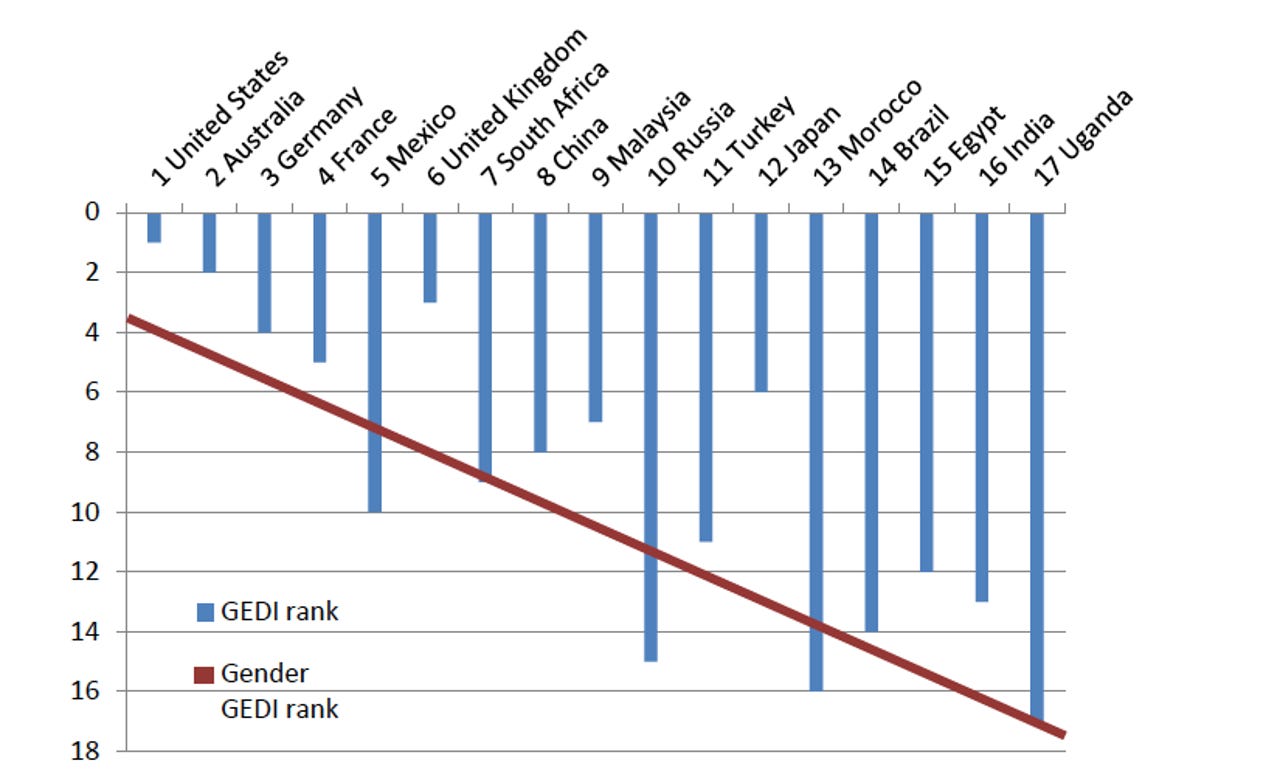U.S. tops rankings for fostering female entrepreneurs


Let's play a game, shall we?
There is a world country whose population is majority female. Within its national government, its legislative body is about 18 percent female. Of its top 1000 companies, women lead 4.5 percent.
Can you guess which nation this is?
Is it Brazil? China, perhaps? Maybe Mexico? India?
How about France? Germany? Japan, at least? Or maybe Australia?
No, on all fronts. The nation I've described is the United States. And yet it leads the world in fostering female entrepreneurship, according to a new study.
In a survey that spans 17 countries—the above mentioned, plus Egypt, Morocco, Malaysia, Russia, South Africa, Turkey, Uganda and the U.K.—the U.S. was found to lead the pack in having "good institutional foundations" and a "strong entrepreneurial environment" for women.
The full list:
- United States
- Australia
- Germany
- France
- Mexico
- United Kingdom
- South Africa
- China
- Malaysia
- Russia
- Turkey
- Japan
- Morocco
- Brazil
- Egypt
- India
- Uganda
The study, which was jointly conducted by the U.S. technology company Dell and the Washington-based non-profit research firm GEDI Institute, is based on the latter's existing Global Entrepreneurship and Development Index from which it derives its name.
The index combines data from sources such as the Global Entrepreneurship Monitor, World Economic Forum, World Bank, United Nations Educational, Scientific and Cultural Organization, United Nations Development Programme and International Labour Organization. It ranks selected nations based on 30 indicators, such as access to capital or social circles.
As I've demonstrated above, however, success is relative. (Meg Whitman, Ginny Rometty, Ursula Burns and Marissa Mayer, if you're reading this right now, chances are high that you're nodding your head in agreement.)
The study's insights were certainly interesting. GEDI found that top-performing countries "scored consistently well across a wide range of indices," versus low-performing countries, which may show success in one area (such as allowing women the social freedom to take advantage of opportunities) but contradictory failure elsewhere (such as denying them institutional support when they try).
GEDI also found that economic strength isn't sufficient to support female success, as evidenced by Japan's poor showing in the list above. Why so low? Because the country has cultural norms that work against women. Just 9 percent of Japan's managers are women, compared to 43 percent in the U.S.
Education, of course, is vital. Japan excepted, most poorly educated countries lack female representation in entrepreneurial activity.
Access to financial capital is also crucial. In low-performing nations, women lack bank accounts; in high-performing nations, they lack venture financing. (In the U.S., just three to five percent of VC funding goes to female-owned businesses.)
In sum? Even list-topping nations such as the U.K. and France have "a large gap of underutilized entrepreneurship potential" because women are comparatively unlikely to launch a startup.
The good news is that a few environmental tweaks can make a big business impact.
"Unleashing the power of female entrepreneurship can have a dramatic effect on a country's economy," Dell CMO Karen Quintos said in a statement. "The research clearly supports the assertion that key things need to be fixed in order for female entrepreneurship to survive and flourish."